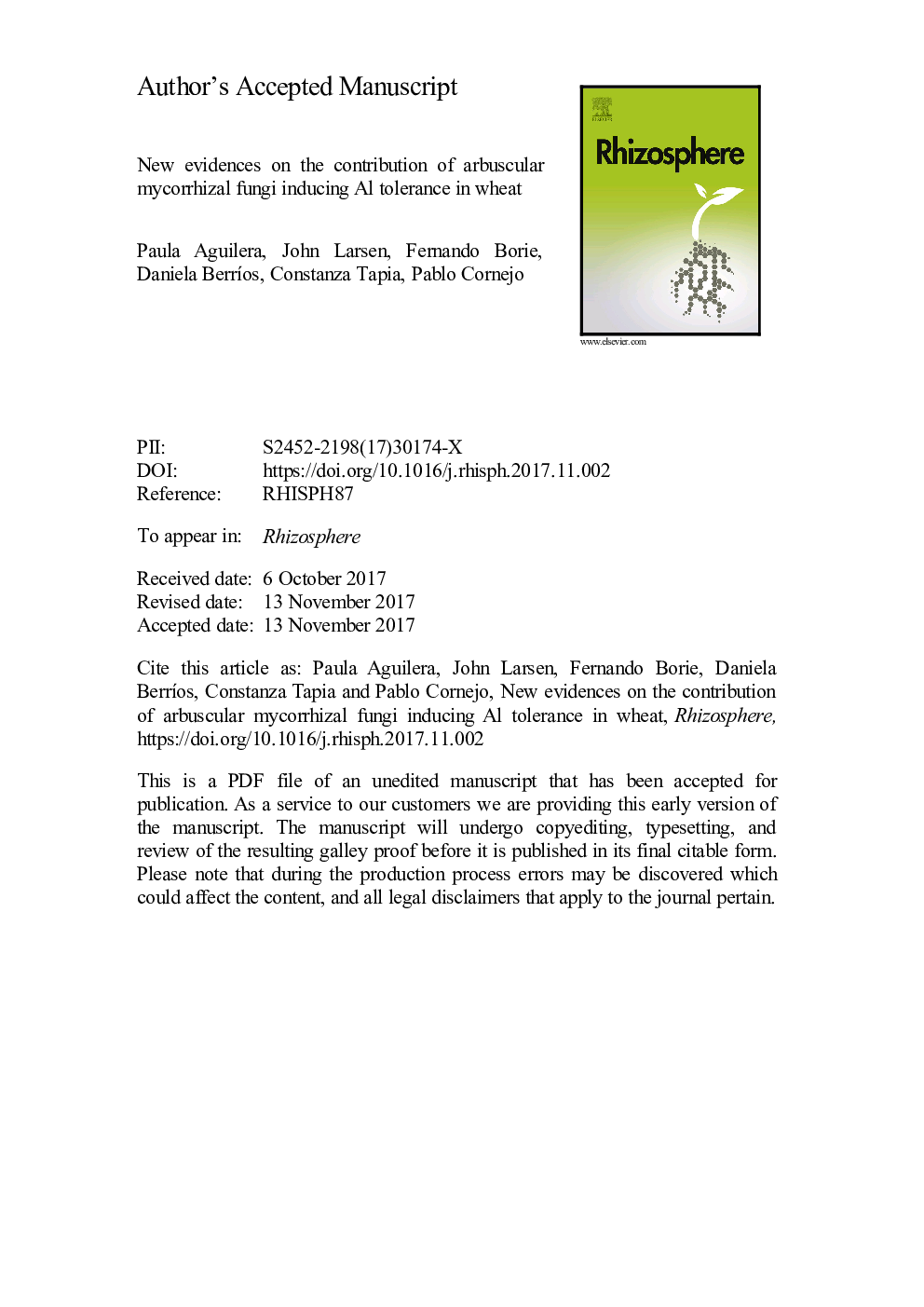| Article ID | Journal | Published Year | Pages | File Type |
|---|---|---|---|---|
| 8882191 | Rhizosphere | 2018 | 37 Pages |
Abstract
Wheat cropping in Chile is mainly located in the Central Southern area on acidic volcanic soils commonly with high aluminum (Al) levels. Introduction of Al-tolerant wheat cultivars has improved production, but the role of arbuscular mycorrhizal fungi (AMF) in augmenting the Al stress resistance of Al-resistant genotypes is mostly unknown. In the present study, we analyzed the effects of Al on growth performance of three wheat genotypes on acidic soils differing in Al tolerance inoculated or not with indigenous AMF communities isolated from Andosols with contrasting levels of Al saturation. Plants were grown in a soil-less rhizobox system including mycorrhizosphere, rhizosphere and hyphosphere compartments. Different Al level (0, 40 and 400 μM) were applied to all compartments. Main factors tested (wheat genotype, indigenous AMF inoculum and Al level) strongly affected plant and AM fungal performance with differential effects on the rhizosphere, mycorrhizosphere and hyphosphere compartments. Both AMF inocula increased plant biomass (> 80%) and APase activity (~200%, especially with Gorbea AMF inoculum). Moreover, AMF isolated from soils with high Al saturation strongly reduced Al translocation to shoots (up to 5.8-fold in the higher Al level) and increased the Al exclusion in plants growing at high Al levels (over 70%), which may reflect the binding of Al in the rhizosphere by glomalin. By using a rhizobox compartmentation system, our results provide evidence that AMF alleviate Al phytotoxicity through a chemical barrier in which glomalin sequesters Al beyond the root surface, which seems to be an important trait of AMF and would be used for developing management strategies of acidic soils with high Al levels.
Related Topics
Life Sciences
Agricultural and Biological Sciences
Agronomy and Crop Science
Authors
Paula Aguilera, John Larsen, Fernando Borie, Daniela BerrÃos, Constanza Tapia, Pablo Cornejo,
